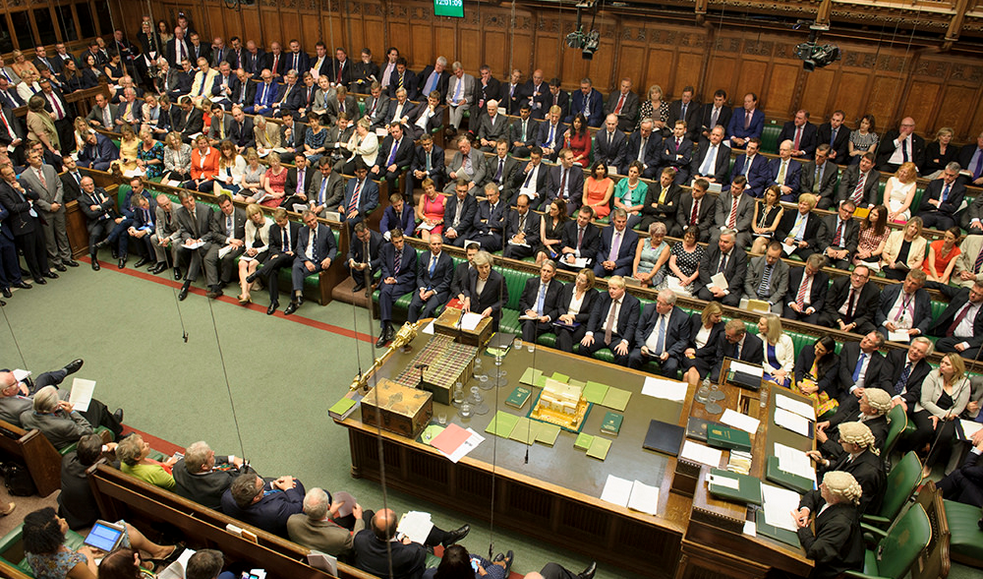John writes:
It seems that most people were as horrified as I was at the malign actions of Christopher Chope, the MP for Christchurch which is in Dorset, last Friday in blocking the Private Member’s Bill seeking to tighten the laws against Female Genital Mutilation (FGM).
I generally avoid the term ‘most people’ as there is an increasing tendency to assume without evidence that the view of ‘most people’ accords with one’s own However, this time I’m pretty sure of my ground. It isn’t often that the comments sections on the web, politicians of all stripes and Her Majesty’s Press are united in their disdain for a political act. It was hard to find a single comment in support of him in the natural homes of Tories of similar views on many other issues.
Only on Thursday, the Twitter account of Chope’s party leader, Prime Minister and former Minister for Women and Equalities, Theresa May, told us how her Government was committed to stamping out the practice, but on Friday Chope used an arcane Commons process to block the Bill’s progress. Famously Chope also used the same process to block Private Member’s legislation intended to criminalise ‘upskirting’ Although Chope contends that his regular Friday ego trip is nothing to do with the issues at hand, nor to do with politics as such but a general objection to the process of debate for Private Members’ Bills. Even if this were true there are many other ways of continuing to make his point. He could for example have raised a spurious point of order of the sort we all raise at one time or other stating how, though he found the whole process unsatisfactory in this case he would make an exception and not raise an objection. After all, Mr Chope has conveniently been absent silent or quite possibly both when his mates have been promoting Private Members’ Bills and has not been averse to using the procedure itself.
Given these facts it is hard not to conclude that Chope’s actions were, consciously or otherwise, a hateful act of misogyny. His party leader’s silence since has been deafening. As bad, if that’s possible, as the act itself, if how this looks for politics, public life in general and Parliament in particular. Here is a single MP - that is 0.15% of the House of Commons blocking a measure that I dare say would have the support of 80% of the population and even more MPs. Over recent weeks and months we have seen Parliamentary process used and abused to ensure that the will of Parliament cannot prevail against the Government or cannot find expression. We’ve seen the Prime Minister clearly seeking to frustrate and side step Parliament by blatantly running down the clock on Brexit and the instructions of the House to the Government to conduct meaningful votes, to return and present new plans and, twice, to rule out a ‘no deal’ exit entirely ignored.
Aside from the immediate issues at hand, none of this is good for public confidence, but it is also corrosive for Parliament itself. Over the years and under successive governments the UK Parliament became increasingly a rubber stamp for the Government’s will. To some extent, through reforms that removed from the Whips the power over Select Committee Chairs, the independent thinking of the current Speaker and long overdue changes to the House of Lords, Parliament has pushed back somewhat. However the UK backbench MP remains, essentially, voting fodder (by the absurdly outdated practice of walking through doors) without significant influence over legislation or events. Of course there are some individuals who carve out their own niche but the opportunities are limited. This is why Chope’s Friday ego trips are so corrosive. Whatever the political views of the voters they want representatives who turn up, represent people and try at least to make a difference. For these reasons it is time the House of Commons reformed its own processes to achieve three things: removing discredited and outdated procedures such as that abused by Chope, ensuring that all backbenchers have the ability to influence the Parliamentary process and ensuring that Parliament is able more effectively to hold the Government of the day to account.
Ah, I hear some of you saying, what business of an MEP is this? Well, I have criticisms of the institution in which I sit too - different, but just as important. For example at the Brussels plenary session at the end of January we witnessed the ludicrous spectacle of a vote on the issue of ‘transparency’ off the Parliament being held by secret ballot - as our clever little voting machines allow - at the request of the largest group, the centre-right European Peoples’ Party (EPP). For the record, I voted for the improved transparency proposals - though I obviously cannot prove it. The proposal was, however, passed - the numbers would suggest the EPP voted against though there were clearly some honourable exceptions. This kind of thing doesn’t make politics look good either.
Institutions should evolve with the times. The very idea that a Parliament should work by the rules decided 150 years ago just because it has always been that way is ridiculous. The point of the whole Brexit thing for some is that Parliament in the UK should be sovereign. Well it is. It always was. If the institution is to have the respect and democracy is to have popular confidence then Parliament needs to behave in a way that inspires confidence rather than acting like the relic of the public school tradition.



